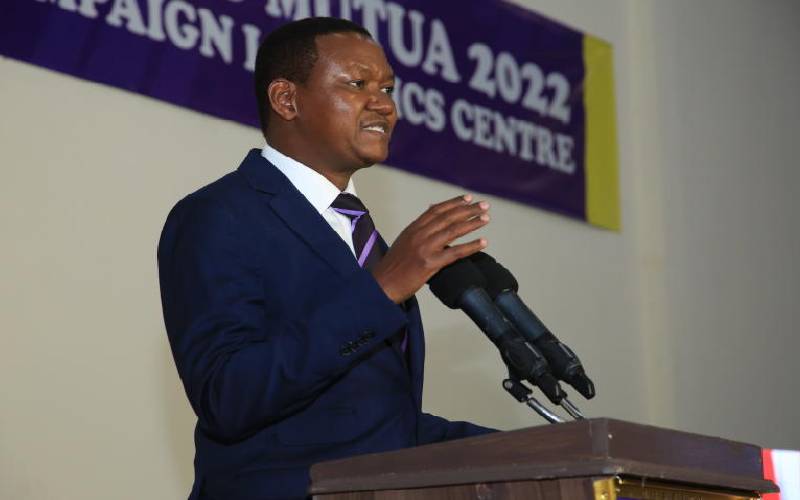×
The Standard e-Paper
Join Thousands Daily

Machakos Governor Alfred Mutua at Alfred Mutua Logistics Centre at Athi River Business Park, Machakos, when he announced his 2022 presidential bid in September 2020. [File, Standard]
The government that will come to power following the 2022 General Election will be corruption-ridden, just like the current one. Here is why.